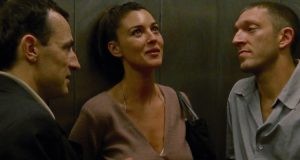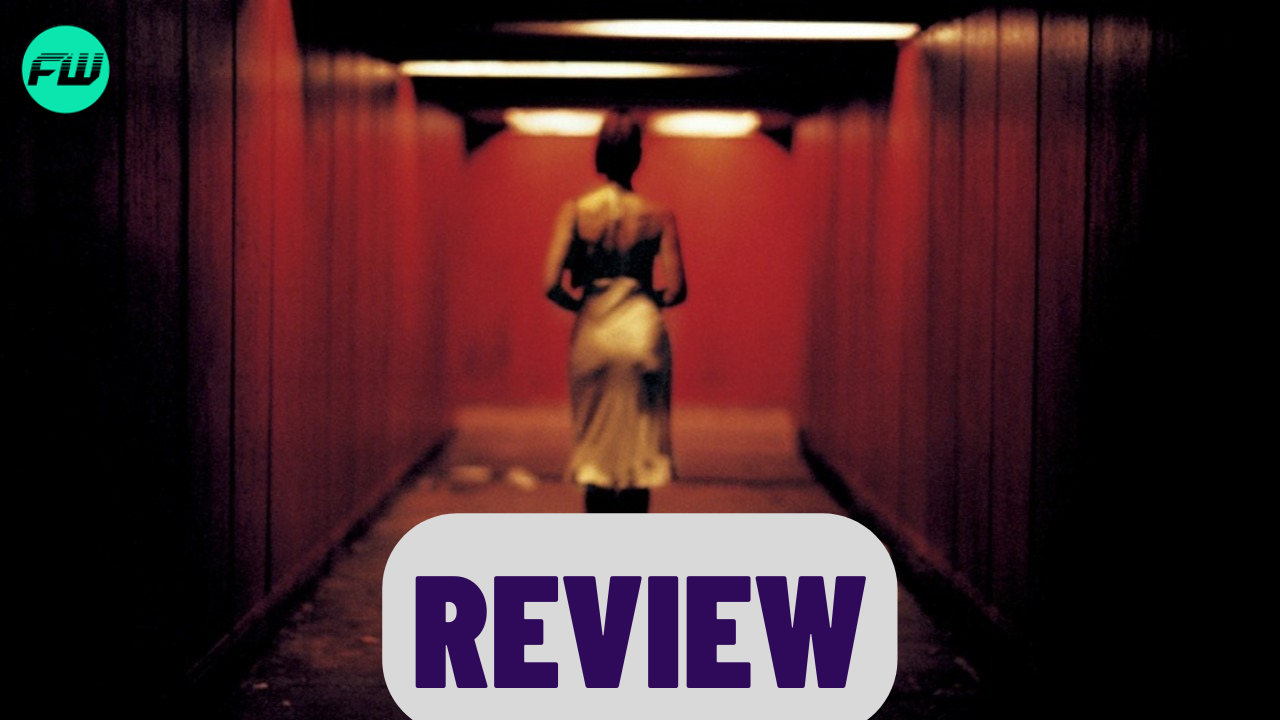The experimental filmmaking style of Gaspar Noé’s controversial Irréversible, gets slightly less experimental with the director’s recent recut of the film. Irréversible: Straight Cut takes the reversed storytelling of the original and re-reverses it for a linear, chronological look at the film over two decades later. The results are interesting, creating what is, of course, a more cohesive experience while losing some of the chaos that defines it.
We’re tackling this review a little differently, by publishing two separate reviews from two unique experiences. One review is from somebody who has seen the original film and is familiar with the work of Gaspar Noé; that’s this review written by me. And one review is from somebody who’s going in completely blind and uninitiated. That review, written by Elliott Wishnefsky, can be read here.
The Plot
The film follows Alex (Monica Bellucci) and Marcus (Vincent Cassel), a seemingly happy couple spending the night out drinking and dancing. The pair are joined by Alex’s ex-boyfriend, Pierre (Albert Dupontel). It’s an unconventional, and at times awkward, grouping as the three openly and publicly discuss prior sexual encounters with one another. When Alex is attacked by a stranger, in a manner than can only be described as brutal and unspeakable, Marcus and Pierre embark on a rage fueled quest for revenge.
‘Irreversible: Straight Cut’ takes controversial filmmaker Gaspar Noé’s hard to watch original, and un-reverses it. The result is mixed, benefiting the narrative but sacrificing much of the experimental nature of its predecessor. #Irreversible #StraightCut pic.twitter.com/XiPi5BvhQo
— Joshua Ryan (@MrMovieGuy86) February 7, 2023

The Critique
Premiering on opening night of Cannes back in 2002, Irréversible quickly caused an uproar and became a significant talking point among festival goers. Few filmmakers are as skilled at crafting controversy through their art as Noé, perhaps rivaled only by Lars von Trier or Harmony Korine. The two major points of discussion were the film’s nearly unwatchable depiction of sexual assault (we’ll come back to that), and it’s unique, reversed style of story telling.
The film unfolds nearly exclusively through uncut, single take scenes. When told in reverse, this helped tremendously by allowing viewers to easily follow each jump backwards in the story; each new scene represented a moment further into the past. Now told in chronological order, the extended, one shot style of filming remains impressive for the necessary skill required from all involved to achieve it. This is especially true for the scenes taking place in a moving vehicle, as the camera transitions in and out of various windows, perfectly choreographed to capture the erratic mindset of Marcus while eliciting a befuddled “How’d they do that?” from its viewers.
Irréversible is also unique in the way it captures and portrays dread. By showing the chaos and the violence first, then forcing viewers backwards to a time of happiness, audiences are left with the nausea inducing knowledge that this happiness is fleeting, and that unimaginable horrors — horrors we have already witnessed — are very near. In contrast, Irréversible: Straight Cut loses that element of unease. That’s not to say Straight Cut is any easier to watch; far from it. Noé sets out to create a wholly uncomfortable viewing experience and he succeeds on many levels.

From the very beginning, with the bright flashing strobe of its opening credits, its established that watching this film will be an experience of sensory overload. As Marcus and Pierre venture down the rabbit hole towards madness, viewers are dragged along with them. Swirling camera movements and dizzying transitions are utilized to take audiences into the manic and frenzied world of drugs, hatred a vengeance. Noé has a way of putting his audience into the roles of his characters in their most vulnerable states.
The film’s most infamous scene, the brutal depiction of sexual assault and battery against Alex, is equally as horrendous whether experienced forwards or reversed. Even having seen the original film, albeit several years ago, I was unprepared. Utilizing the film’s style of long, uncut scenes, audiences are forced to remain with Alex throughout the entirety of her assault. The camera remains unflinchingly fixed upon a nightmare that just like Alex, viewers are unable to wake up from for an unprecedented (approximately) eight minutes.
In Conclusion
Irréversible: Straight Cut is a film that is hard to love, difficult to like, but impossible to ignore. An experiment in story telling that succeeds in creating an experience like no other. Whether you walk away saying you “enjoyed” the film or not, you have to respect the craft and the accomplishment of it. I admittedly went into Straight Cut a bit hesitant, asking myself why Noé would want to take away the primary element that makes Irréversible what it is. The truth is that it’s an entirely new observation of a difficult to endure, yet significant piece of cinema.
8/10
Follow us for more entertainment coverage on Facebook, Twitter, Instagram, and YouTube.


